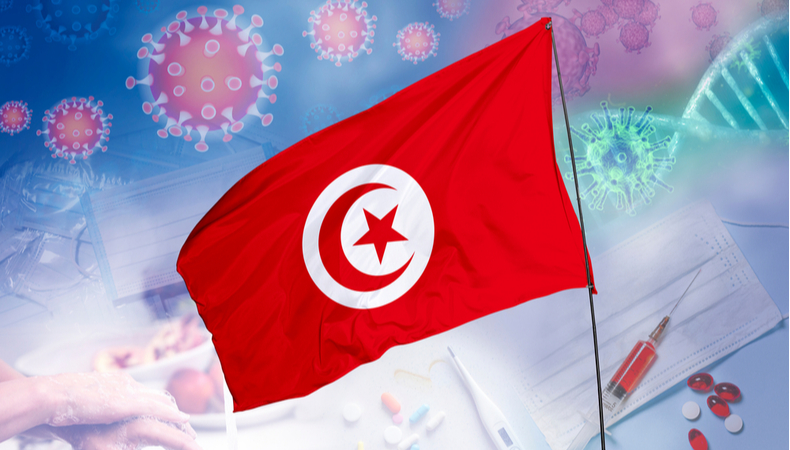Covid-19, international solidarity comes to Tunisia’s rescue

According to the data released by the Ministry of Health, on July 15, Tunis registered 205 deaths and 6,787 new cases out of 22,403 tests performed, with a positivity rate of 30.30%. The country’s public hospitals are in extreme difficulty due to the high number of hospitalized patients complain of a lack of oxygen for treatment.
Tunisia had come out relatively well from previous waves, but this time undergoes a brutal onslaught of the virus, which has collapsed the national health system. All Tunisian indicators are in red, as shown by the data reported by the independent Tunisian website Inkyfada. Red is also the color of the traffic light demonstrated by France, which has forbidden visitors to visit Tunisia except in case of extreme necessity.
An inhuman tragedy is underway in the country, with overcrowded emergency departments and no more ample room even in the corridors. The youth Republic has the highest death rate on the African continent. Still, the tragedy is also social, in a nation hard hit by years of chaos, and economical, with the tourist season, sacrifice, and related jobs.
International solidarity comes to Tunisia’s rescue. It took some time, but today the aid is substantial. France and China send the missing vaccine doses, while the neighbors in the Maghreb provide oxygen and respirators, like Turkey and Saudi Arabia. Tunisia has 1.5 million citizens residing abroad, half of whom are in France. Social networks have worked at total capacity to raise funds and send equipment or drugs to hospitals and associations. The main feature of the flow of aid from the diaspora is that it carefully bypasses the state, judged to be incapable, and reaches directly to civil society.
The confidence of Tunisians in their Government vanished after a revolution’s decade, which left a bitter taste in the mouth of the population. In a context marked by sterile maneuvers that had paralyzed political life – between the leading force in parliament, the Islamists of Ennahdha, and president Kaïs Saïed – the pandemic overwhelmed the political theater, preventing any progress and showing the degradation of services.
In addition, the health emergency highlights the lack of skills that Tunisia has been a victim of for years due to fatigue or desperation. In this regard, there is a striking fact: Tunisian resuscitators who work in French hospitals are more numerous than those who work in Tunisia.
After the revolution of 2011, which brought freedom to the country, Tunisia showed all the liveliness of its civil society. Today, the same strength is showing again. The hope is that this momentum will contribute to overcoming the pandemic test and giving life and energy to democratization not yet complete, but which remains the only survivor of the “Arab Spring.”




